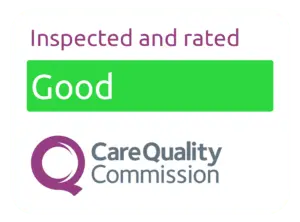What is appetite and can it be controlled?
Understanding appetite and how it is controlled can help us to think about how and why we eat, especially when we are trying to lose weight.
Why do we need an appetite?
Our body requires a supply of nutrients and energy to maintain its structure and growth and to provide the energy for daily physical activity. Our appetite is the terms used to describe the how our body sends us the signals that we require nutrients and energy that drive our hunger and desire to eat.What is homeostatic or innate appetite control?
Vital organs such as the heart, brain lungs, liver, GI tract and skeletal muscle generate a need for energy each day as they expend energy doing their daily tasks. This creates a physiological source of hunger to drive food intake for the energy they need. Within our body is a complex set of hormone and nervous system signals that travel between the GI tract, fat tissue and the appetite control centre of the brain, sometimes called the gut-brain axis, and these signals regulate the desire to eat. When we eat, our stomach, intestines, and pancreas release signals to the appetite control centre of the brain to indicate that we have taken in energy and we can reduce appetite. As the food we eat is digested and stored, the pancreas and fat tissue release signals to the brain to further reduce hunger as we are creating energy stores from the food we have digested. All the signals tell the brain to reduce our appetite or hunger and that we are full and satisfied, the medical terms for this is satiety. When our stomach is empty, it releases a hormone, ghrelin, which signals to the brain to increase hunger and the drive to eat. When we eat, ghrelin levels are reduced and the appetite reducing signals increase.Why can it be hard to feel these effects?
As we begin to overeat and increase our fat stores over time, changes happen that make it harder for our body to listen to these innate signals. We start to become resistant to the signals that fat tissue secretes to say we have increase fat stores, the hormonal signals from the gut start to reduce in intensity and ghrelin levels are not suppressed when we eat keeping a continual drive for hunger. If we eat increasingly large portions our stomach, a muscle, can begin to stretch more, and over time this can also lead to reduced signalling to the brain when we are satisfied with food.What is the appetite control centre of the brain?
The appetite control centre is in the hypothalamus, which is one of the older parts of the brain. It receives all the hormone and nervous system signals that come from the body and it either increase hunger, through appetite stimulating nerves, or decreases hunger, through appetite suppressing nerves. This complex system of signals continues throughout the day to manage our appetite, hunger and fullness.What other factors control our appetite?
If our appetite and drive to eat was solely controlled by the hormones and signals outlined above, no one would overeat or be overweight. However, several of main drives to eat do not come from the appetite stimulating nerves of the hypothalamus but environmental, social and psychological factors. Socially it is enjoyable to eat with friends and family, and many of our main celebrations in the year are centred around food – Easter, Christmas, Birthdays etc. Often, we meet our friends socially or visit our family and share a meal. It can be a social enjoyment to cook and often families will enjoy preparing and cooking a meal together. Environmentally we are surrounded by food cues that can tempt us. Many shops on the high-street are either food retailers, take-aways or have a food section within their store. Often by the counter when we pay in shops, tempting foods are placed by the counter for an impulse buy. Television adverts, especially at prime time, are for food retailers or take-away chains and there are many cooking programmes that can tempt us to eat when not hungry. Social media even advertises food to us, posting pictures of food and meal ideas that can drive hunger. Eating food itself is a pleasurable experience and we know that the hypothalamus in the brain signals to the reward centres in the brain – after all if eating were not pleasurable, we would not do it and we would not survive. The food we have available in supermarkets and restaurants is often highly palatable, with different tastes and textures that can be highly enjoyable to eat. Finally, emotion can play a big role in our drive to eat when we are not hungry. This can either be at times when we feel sad or happy. As eating food is as a pleasurable experience it can be a source of comfort or distraction when we have negative emotions. When we have a positive emotion and something to celebrate and we often reward ourselves with food. Given the complexity of appetite control and the drive to eat, it is not surprising that so many of us eat when our body does not truly need energy and that we can begin to put on excess weight.How does appetite suppressing medication work?
Appetite suppressing medication works by augmenting the hormone and nervous system signals that control physiological hunger. The work on these intrinsic pathways to help reduce the drive to eat and increase the feel of fullness once we have eaten. At The Slimming Clinic, the appetite suppressing tablet medication we prescribe, works on the appetite suppressing nerves in the hypothalamus of the brain. It stimulates these nerves continually during its time of action (12-14h after taking the one a day medication, 4-6 hours after taking the 3 a day medication). The appetite suppressing daily injection we prescribe also works on the appetite suppressing nerves in the hypothalamus. The injection is a mimic of a normal hormone reduced by the stomach when we have eaten, GLP-1, which sends signals to the appetite suppressing nerves in the brain but it also has an effect on the stomach. It slows down how quicky the food leaves the stomach after being eaten thereby increasing the level of fullness you feel and further suppressing your appetite. Prescriptive appetite suppressing medication is able to help with hunger reduction however it is not able to stop the environmental, social and psychological factors and cues in our lives. It is important that whilst taking appetite suppressing medication you understand that there will still be times you feel a drive to eat, even when you are not hungry, as our past behaviours encourage us to do so. Therefore, it is important that you begin to change those behaviours whilst on the medication so that you can maintain your weight loss. Think about the social occasions you normally centre around food, the places you are tempted to eat (shops, social media) and the emotions that drive you to eat. You can then begin to put steps in place to change your behaviour at these times and our team of dedicated experts at The Slimming Clinic can help you with this. Related posts

Weight Loss Myths: BUSTED!

Nutrition and Hydration Week: How Food & Hydration Aid Weight Loss

How Sleep Affects Weight Loss – World Sleep Day 2025

Ramadan Weight Loss Guide: Balancing Fasting with Weight Loss Medications

12 Christmas Weight Loss Tips

Weight Loss Motivation: Stay Inspired to Achieve Your Goals
Looking to start your weight loss journey, then take action today!
Book an appointment with one of our GMC-Registered Doctors who are weight loss experts and can ensure you get the best programme for you. Alternatively request your medication online using our online prescription service.


